Your Birth Month Flower And Its Meaning Explained
Your birth month flower is just as important as your birthstone.
 Dean Drobot & Liz Pichardo / Shutterstock
Dean Drobot & Liz Pichardo / Shutterstock You’ve probably already heard of birthstones, but did you know your birth month has its very own flower?
Each flower carries its own story and significance. And many come in different colors and sizes, so you can choose the perfect flower for your birthday celebrations, or for any occasion, really!
Just like the flowers we gift to others have meanings behind them, so do the flowers that are specific to the month you were born.
What do flowers symbolize?
Flowers have had symbolic meanings for centuries, and are often used in poetry and other forms of expression to convey certain meanings. Used to express gratitude, love, loss, and much more, flowers speak a language of their own.
While in bloom, flowers can represent a plethora of things, including purity, passion and youthful beauty. As they die and begin to wilt, flowers are associated with the fragility of life, and the cycle of life and death.
What are birth flowers?
Each month of the year has a flower, sometimes more than one, associated with it. Back before we had other means of communication, people would use flowers to express their thoughts and feelings, or celebrate a particular event.
Birth month flowers are said to have begun in ancient Roman times, when celebrations for birthdays first began. People would decorate Roman altars with specific flowers, express gratitude to the Roman gods, and give flowers as birthday presents.
We still use this practice today, but now, we give flowers in times of celebration and grief to let the recipient know they have our support. So, think of birth month flowers as a great gift or addition to your own home if you want to celebrate yourself.
Birth Month Flower Meanings
January: Carnation
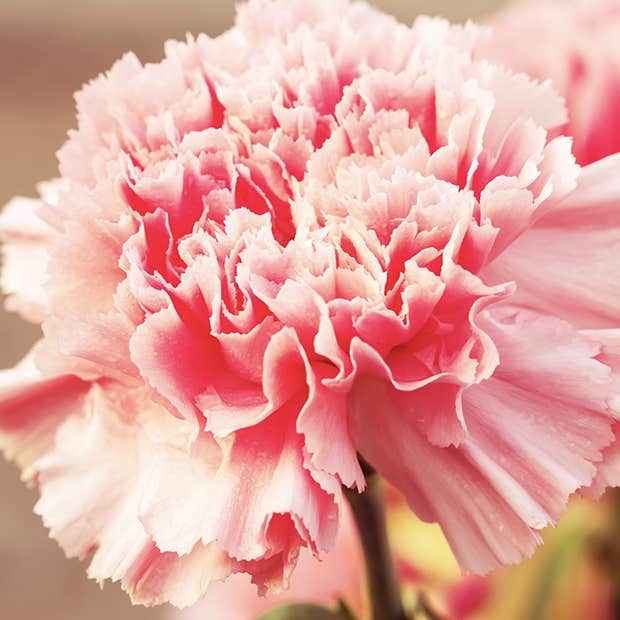 Photo: Standard store88 / Shutterstock
Photo: Standard store88 / Shutterstock
January birthdays have both the carnation and the snowdrop as their birth month flowers.
Carnations are one of the few flowers that still bloom in cold temperatures, so you’ll see them at your florist year-round. You can get carnations in a variety of colors, but the white ones are a stunning symbol for good luck and purity, while red symbolizes love and admiration.
People with carnations as their birth month flower are passionate and loyal, and devote themselves to protecting their family and loved ones.
February: Violet
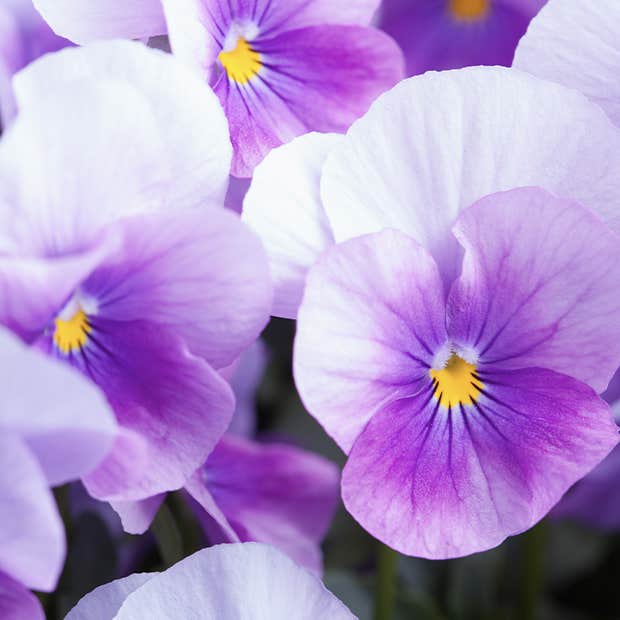 Photo: Olga Miltsova / Shutterstock
Photo: Olga Miltsova / Shutterstock
Violets are delicate purple flowers replicate the color of February’s birthstone, amethyst. They are often associated with modesty and loyalty, tracing back to the Victorian Era where these traits were extremely sought after.
While you should keep your violets indoors in the winter, their long stems make a beautiful addition to any garden once the weather warms up.
People with violets as their birth month flower are honest, wise, and incredibly down to earth.
March: Daffodil
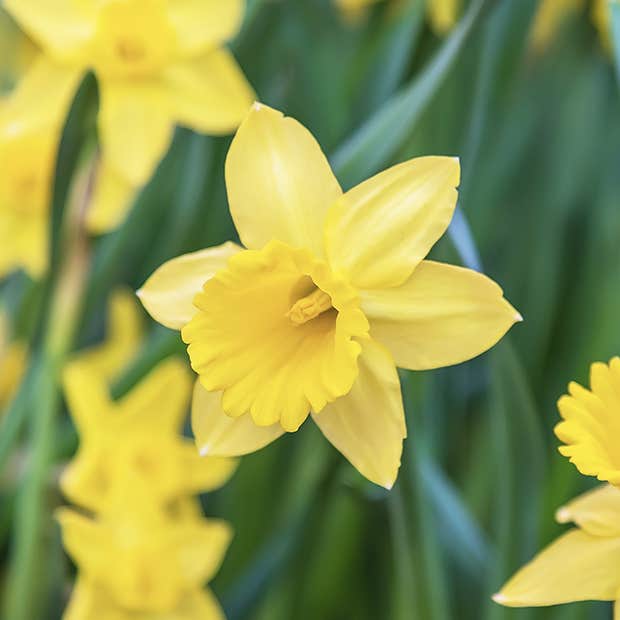 Photo: tonkin / Shutterstock
Photo: tonkin / Shutterstock
When these friendly yellow buds start to poke their heads through the ground, you know spring is arriving and cold days are slowly disappearing!
These flowers symbolize rebirth and renewal, reminding us to invite in new beginnings and let go of hardship.
People with daffodils as their birth month flower are eternally optimistic and positive, and spread their joyful personality to those around them.
April: Daisy
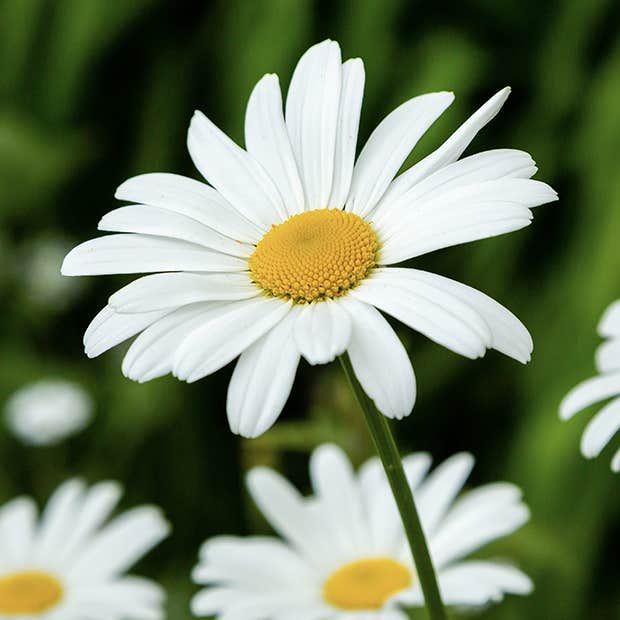 Photo: Flower_Garden / Shutterstock
Photo: Flower_Garden / Shutterstock
These unassuming flowers are easy to grow and can be found just about anywhere. They symbolize youth and purity, along with motherhood and sensuality.
Lovers of daisies will stay forever young and full of joy thanks to this playful little flower. These flowers do best in direct sunlight and well-drained soil.
People with a daisy as their birth month flower are easygoing and cheerful, and enjoy the simple things in life.
May: Lily of the Valley
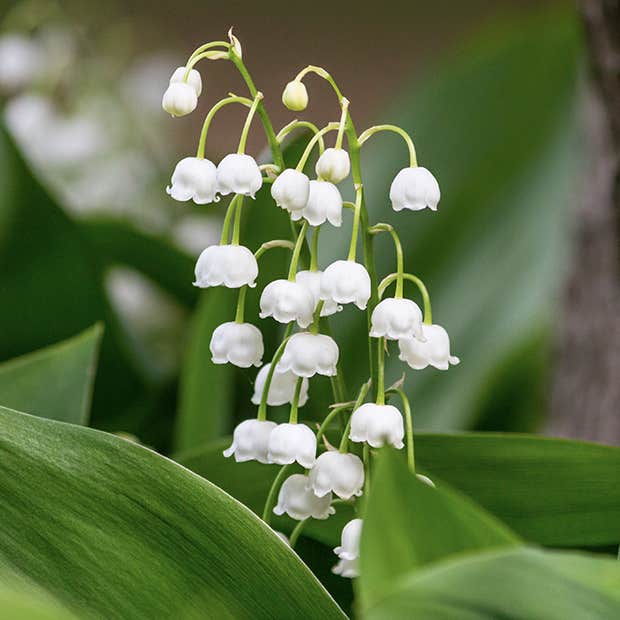 Photo: rustamank / Shutterstock
Photo: rustamank / Shutterstock
You know what they say, “April showers bring May flowers.” This dainty white flower is a symbol of joy and sweetness.
The white buds and contrasting stems make for a great addition to any bouquet. They have a deliciously sweet scent and love to hang out in damp, shaded parts of your garden.
People with a lily of the valley as their birth month flower are extremely talented, trustworthy, loyal, and kind hearted.
June: Rose
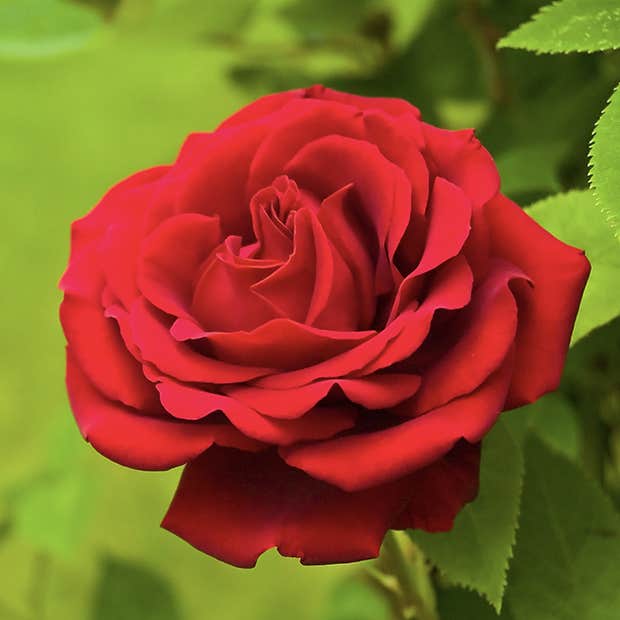 Photo: Frank L Junior / Shutterstock
Photo: Frank L Junior / Shutterstock
Different shades of roses have different meanings but, generally speaking, they are associated with love and passion. Aphrodite, the Greek goddess of love, presented a rose to her precious, Eros.
Yellow roses make a great gift for a friend born in this month, as yellow roses are symbols of friendship!
People with a rose as their birth month flower may enjoy the attention from everyone in the room, but they are incredibly passionate individuals.
July: Larkspur
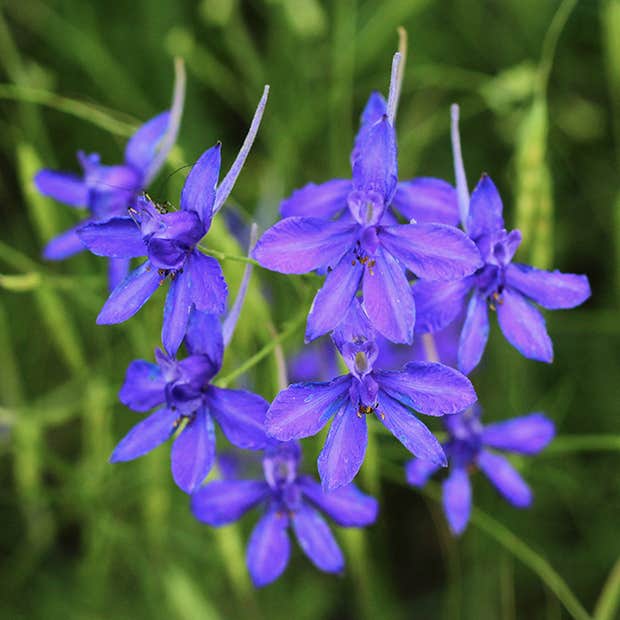 Photo: aquatarkus / Shutterstock
Photo: aquatarkus / Shutterstock
These cone-like flowers are filled with tiny pink and purple buds, and are an eye-catching flower. They are inviting to look at, and symbolize positivity and openness.
Better times are ahead if you cross paths with one of these plants, so welcome the change.
People with a larkspur as their birth month flower are very kind and compassionate people, who show empathy for those close to them, as well as towards strangers.
August: Gladiolus
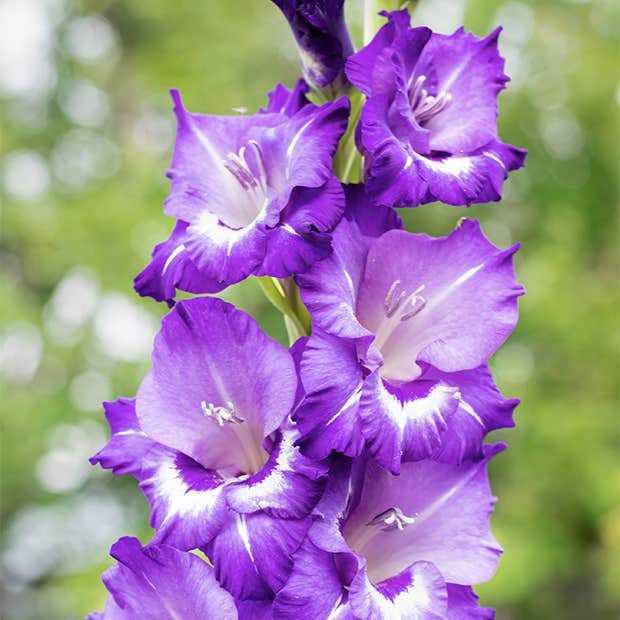 Photo: Sunny_Smile / Shutterstock
Photo: Sunny_Smile / Shutterstock
These flowers get their name from the Latin word for sword “gladius,” and are a symbol of strength and integrity. These flowers and those associated with them have the power to pierce the hearts of all who they encounter.
These tall spires grow to impress heights, showing off their resilience.
People with a gladiolus as their birth month flower will actively stand up for their beliefs and are independent by nature.
September: Aster
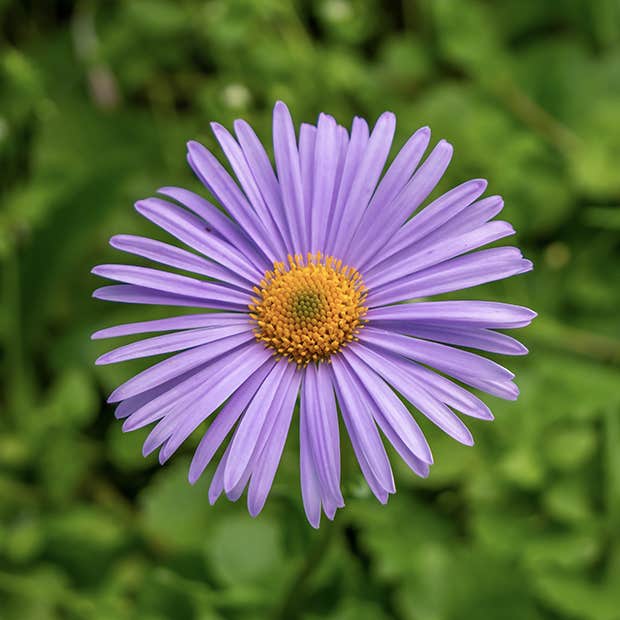 Photo: Volodymyr Yakovyna / Shutterstock
Photo: Volodymyr Yakovyna / Shutterstock
Greek legend says that asters, also a word for stars, were created by the goddess, Astraea, who wept when seeing too few stars in the sky, making these colorful buds from her tears. They are a powerful symbol of wisdom and patience.
Good things come to those who wait all year for these flowers to crop up.
People with an aster as their birth month flower are known to be incredibly loyal to the ones they love, and are also courageous, facing any difficulties in their path head-on.
October: Marigold
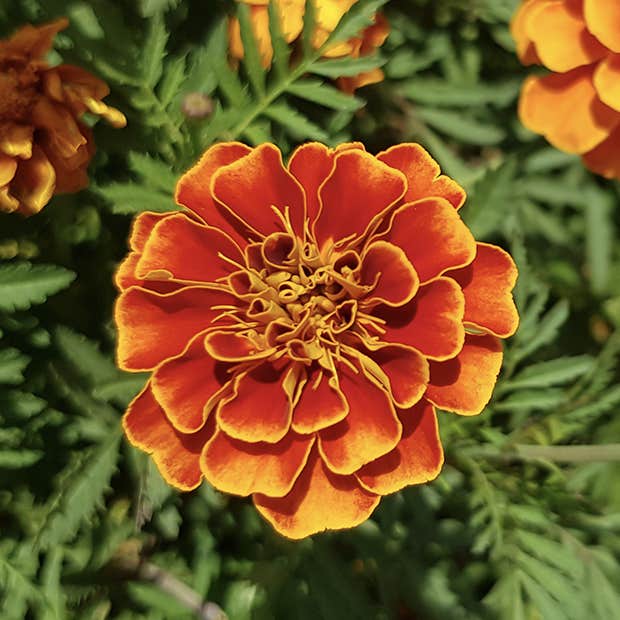 Photo: Printemps PhotoArt / Shutterstock
Photo: Printemps PhotoArt / Shutterstock
With their rich, autumnal hues, marigolds are the quintessential October birth flower, mimicking falling leaves. They will keep blooming until frost, as a symbol of their fierceness and passion for life.
Early Christians called marigolds Mary’s Gold, and placed it by statues of the Virgin Mary.
People with a marigold as their birth month flower tend to be a bit stubborn in nature, but they are very passionate about their beliefs and are highly creative.
November: Chrysanthemum
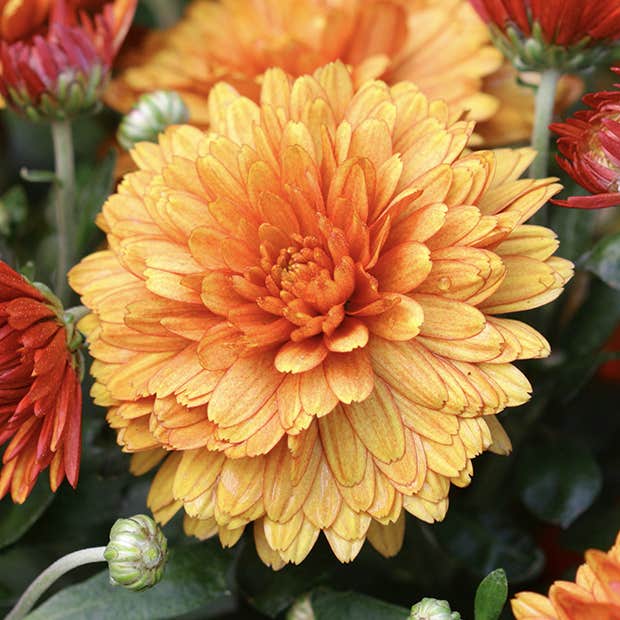 Photo: Tibesty / Shutterstock
Photo: Tibesty / Shutterstock
The Japanese consider chrysanthemums to be a symbol of perfection, while other ancient cultures say it symbolizes the sun, optimism, and loyalty.
They are a friendly plant that should be given to everyone you hold dear. They come in a variety of colors, so they make a good addition to any bouquet.
People with a chrysanthemum as their birth month flower are ambitious, progressive, and believe that hard work is incredibly important.
December: Narcissus
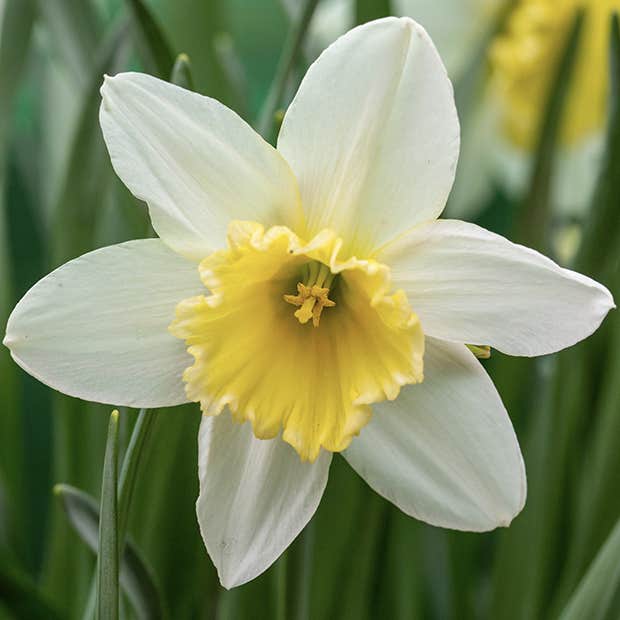 Photo: Anton Nikitinskiy / Shutterstock
Photo: Anton Nikitinskiy / Shutterstock
Hollies and poinsettias are often associated with this month, but the daffodil-like narcissus is the birth flower of December. With their ability to bloom during a time of little growth, they symbolize hope.
These snow-white buds look delightful as a centerpiece for the holidays.
People with a narcissus as their birth month flower are honest individuals who have a strong connection to their spirituality.
Alice Kelly is YourTango’s Deputy News and Entertainment Editor. Based in Brooklyn, New York, her work covers all things social justice, pop culture, and human interest. Keep up with her Twitter for more.

